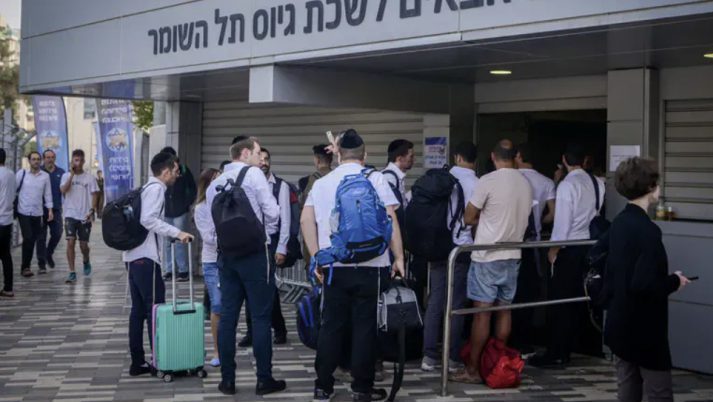Attorney General Chairs High-Level Discussion on Yeshiva Student Draft Enforcement Amid Growing Political Tensions
A high-level interagency discussion was held this week, chaired by Attorney General Gali Baharav-Miara, to advance the implementation of the Israeli Supreme Court ruling mandating the enforcement of mandatory military enlistment for yeshiva students. The meeting was attended by senior representatives from the IDF, Ministry of Defense, Finance Ministry, and other key legal and security agencies.
According to IDF data released in July, 1,721 Haredi recruits joined the military in the current enlistment cycle, which began in June 2024. The session focused on formulating an enforcement and recruitment framework for 2025, aimed at promoting equity and rule of law in the national draft process.
Key Measures and Action Plan for 2025:
- Draft Notices:
By the end of July 2025, approximately 54,000 draft notices will have been issued to all candidates eligible for service up to age 16.5. Individuals with previously deferred enlistment will be required to report for induction. - Accelerated Enforcement:
Starting next month, the military will shorten the timeline for declaring individuals as draft evaders and issuing arrest warrants—from the current two months to 1.5 months, and eventually to four weeks from the initial draft notice. - Border Enforcement:
The IDF, Police, Border Authority, and Population and Immigration Authority will jointly implement enhanced screening at border crossings, where draft evaders caught attempting to exit the country will face immediate arrest for enlistment. - Intelligence and Raids:
The military plans to conduct frequent raids, arrests, and checkpoints, particularly in areas with high rates of evasion, to bolster proactive enforcement and locate deserters. - Final Amnesty Window:
In September, a final opportunity will be given for draft evaders to voluntarily enlist. Those who report will begin service immediately, and their criminal liability will be evaluated afterward, allowing for leniency in some cases. - Detention Facility Expansion:
With detention capacity currently limited, the IDF is exploring ways to expand facilities in preparation for extensive enforcement operations. - Benefit Denials & Legislative Support:
The meeting emphasized expanding non-criminal enforcement tools, including denial of government benefits for draft evaders. The Budget Director at the Treasury has been approached regarding funding for this initiative, along with a push to advance supportive legislation.
The Attorney General welcomed the IDF’s planning progress, endorsed continued updates, and scheduled a follow-up session to review unresolved gaps—particularly in enforcement operations, detention logistics, and coordination with the Ministry of Education. A detailed affidavit will be submitted to the Supreme Court, outlining enforcement policies, arrest guidelines at border crossings, and the scope of discretion being applied.
Political Response:
The plan has already drawn strong opposition from ultra-Orthodox political leadership. UTJ leader MK Moshe Gafni condemned the Attorney General, stating:
“Gali Baharav-Miara has declared herself the chief warrior against the world of Torah, Torah learners, and the Jewish people. We will not allow even one yeshiva student to be prevented from studying Torah and ending his studies. The Jewish people are taught by the trials of history… we know what happened to those who tried to stop Torah study.”
As enforcement efforts ramp up, the tension between the state’s legal institutions and the ultra-Orthodox community is likely to intensify, with profound implications for Israeli civil-military relations, coalition politics, and the principle of equality before the law.





